A Aphthe represents a very painful but harmless damage to the mucous membrane of the gums, oral cavity, tonsils or tongue. The causes of aphthae are largely unknown.
What helps against aphthae?

To clarify the question of what helps against aphthous ulcers, their basic properties should first be discussed.
Aphthous ulcers are small ulcers with a fibrin coating on the oral mucosa. Some of them are very painful. The majority of aphthae belong to the so-called minoraphtha with a size of up to five millimeters. In rare cases majoraphtha can occur, which can be up to two centimeters in diameter. As a rule, however, they disappear again after about one to two weeks.
However, depending on where they are, they can be extremely painful. Whether an aphtha is large or small does not play a role in the development of pain. So a major naphth may remain painless, while a minor naphth, if it is in an inconvenient place, can be very painful. A causal treatment is not possible and also not necessary, because the causes of aphthous ulcers cannot yet be clearly identified and they usually disappear again quickly.
However, the often extreme pain affects the quality of life to such an extent that symptomatic pain treatment is indicated. The causes of aphthae are largely unexplained. One suspects a genetic disposition, which leads to apthene formation under appropriate conditions, such as stress or a weakened immune system. In some cases it appears to be caused by a viral infection.
This can also lead to aphthous ulcers under the influence of the herpes virus. Aphthous ulcers can occur once or repeatedly. They are less often caused by systemic diseases that lead to nutrient and vitamin deficiencies, such as celiac disease, HIV or Behcet's disease.
Quick help
The extreme painfulness of aphthous ulcers sometimes makes it necessary to take quick action to relieve the pain. There are many remedies that promise quick pain relief.
However, they do not act causally, but only symptomatically. Pastes containing cortisone, antiseptic solutions, rinsing with hydrogen peroxide or antibiotics are offered for treatment. The large number of remedies already shows that there is no really effective drug against aphthous ulcers. Ointments, sprays and gels which contain active ingredients such as lidocaine, polidocanol, chlorhexidine or benzydamine have proven effective for rapid pain relief. The mechanism of action of these active ingredients is different.
What they all have in common is that they temporarily relieve pain when applied superficially. In order to protect against the unbearable pain, the aphthous ulcers should be treated with these agents until they heal by themselves. Dab concentrates have also proven their worth. So shows z. B. the Pyralvex solution based on salicylic acid and rhubarb roots or the albothyl concentrate when dabbed on the corresponding aphtha good pain-relieving effect.
Certain agents, also called astringents, are astringent and corrosive. They cause dead tissue to be rejected and thus indirectly support accelerated healing. These active ingredients include hydrogen peroxide, silver nitrate, phenol sulfonic acid compounds, policresulen, but also myrrh tincture and rhubarb root extract.
Alternative remedies
Some home remedies also have good pain relieving effects. In addition, they can also speed up the healing process a little. Chamomile tincture is one of the aphthous home remedies.
You can make this tincture yourself. Chamomile flowers are left to soak in seventy percent alcohol for a few days. Then the brew is strained and diluted with boiled water. Daily rinsing of the mouth with the tincture has a positive effect on healing. Furthermore, green tea is a proven home remedy for aphthous ulcers.
The catechins in tea in particular have an antioxidant effect. Daily drinking of green tea has a positive effect on the healing of aphthae. Other effective household remedies include papaya, aloe vera and radish juice. All three home remedies contain active ingredients that inhibit inflammatory processes. The application of baking soda or vitamin C to the aphthae also has a positive effect on the healing process.

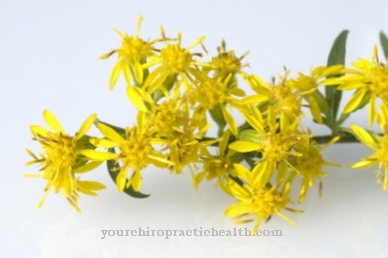
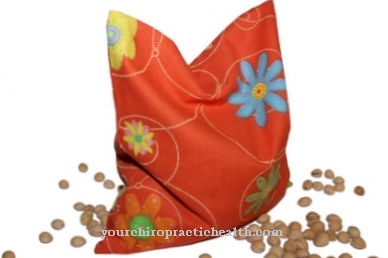
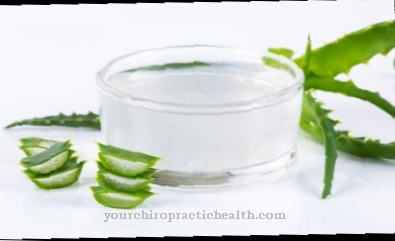
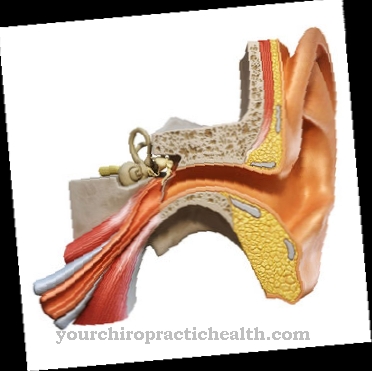
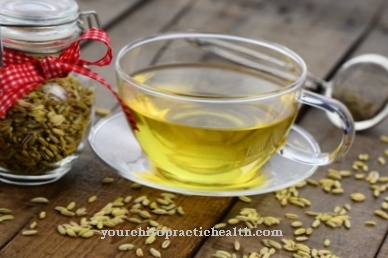






.jpg)



.jpg)










.jpg)
